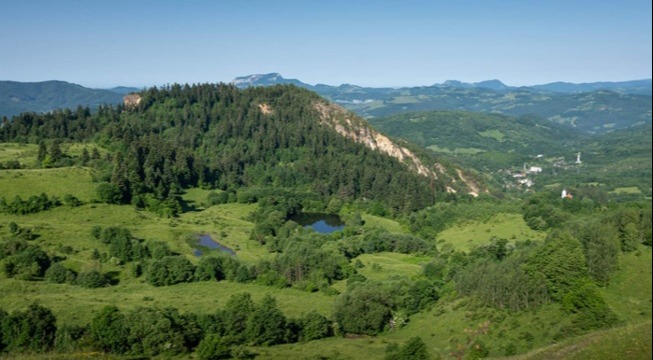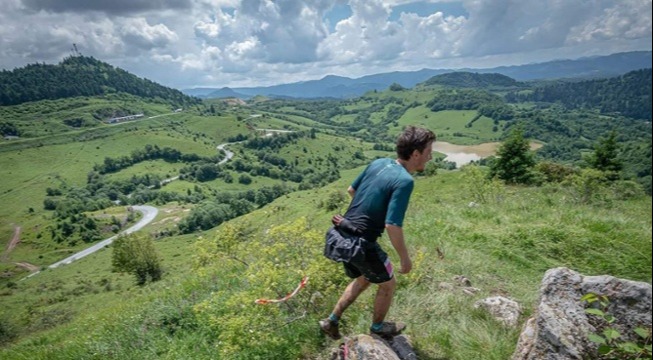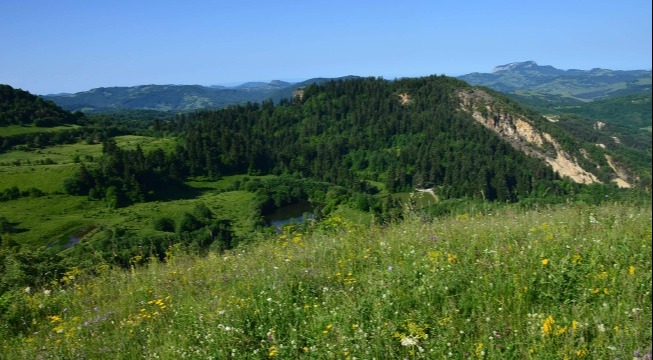Pachamama Romania Hosts its 8th Annual Marathon for Rights of Nature
 This past June, Pachamama Romania hosted its 8th annual Rosia Montana Marathon dedicated to Rights of Nature. The Rosia Montana Marathon is part of a multi-day event where people from across Romania come to Rosia Montana, a region located in the Apuseni Mountains, to participate in a marathon race as well as other community events.
This past June, Pachamama Romania hosted its 8th annual Rosia Montana Marathon dedicated to Rights of Nature. The Rosia Montana Marathon is part of a multi-day event where people from across Romania come to Rosia Montana, a region located in the Apuseni Mountains, to participate in a marathon race as well as other community events.
Alexandra Postelnicu, who founded Pachamama Romania, started the Marathon in 2013 as a response to the government’s plans to issue a permit for open pit mining in Rosia Montana. Inspired by the Awakening the Dreamer Symposium, Alexandra decided to use her passion for education and for running to protect Rosia Montana and advance Rights of Nature for this area. Pachamama Romania joined many others in successfully halting the open pit mining, and this past year, Rosia Montana was recognized as a World Heritage Site by the United Nations Educational, Scientific, and Cultural Organization.
Pachamama Romania organizes the Rosia Montana Marathon each year as a way for people to learn about the history of Rosia Montana, to connect with nature, and to see Rosia Montana as a living being and not as a resource to exploit.
The Spiritual Aspect of the Rosia Montana Marathon
Though the focus of the Marathon has largely been about Rights of Nature, it has also expanded in recent years to incorporate personal transformation.
Participants of the Marathon are invited to connect with nature and through that connection, discover who they truly are and what contributions they can bring to creating a sustainable and just world. In Alexandra’s words, Rosia Montana is a spiritual place that opens people’s hearts and connecting to it allows people to find their calling.

Not only does the Marathon encourage individuals to grapple with personal transformation, but also with the spiritual aspect of Rights of Nature.
For Alexandra, Rights of Nature is important because it invites people to remember humanity’s true nature, which is to be in balance with the environment. She points to the rising cases of anxiety and depression in Romania—even among children—and describes this as a reflection of the imbalance between humanity and nature. As she puts it, humanity can’t be well if nature isn’t well and the destruction that happens to nature has an impact on humanity.
Being in Community
Another key aspect of the Marathon is an opportunity for participants to be in community with one another.
In addition to the Marathon itself, Pachamama Romania organizes cultural activities for participants to engage in during the multi-day event. These activities—such as film screenings about the history of Rosia Montana, folk music concerts, visits to the local museums, and guided tours—imbue participants with a sense of community and provide a way for them to connect with the culture and history of Rosia Montana and of Romania.
The Marathon also provides an opportunity for participants to support the local community. This year, a portion of the Marathon’s funds were donated to a local school in Rosia Montana. With this donation, the school was able to renovate its building and yard, create a place where the students can read, and purchase technology such as computers, tablets, and projectors.
The Marathon provides alternate sources of income for the local community members as well. Before, many people had believed that mining was the only way to earn a living in Rosia Montana. Through the Marathon, the locals in the region are able to earn a living by providing housing for those who participate in the event. Visitors also have an opportunity to support the businesses of small entrepreneurs and producers there.
The Future of Pachamama Romania’s Work
Pachamama Romania’s work around Rights of Nature extends beyond the Rosia Montana Marathon. Pachamama Romania is currently working to establish a Rights of Nature law to protect Rosia Montana. Though it has yet to find a politician in Romania to support this work, Pachamama Romania is working with legal experts such as Mari Margil from the U.S. and Eugen Cadaru from Romania to move these efforts forward. Pachamama Romania invites anyone who can be an ally to this work to join their efforts.
 In addition to this vital Rights of Nature work, Alexandra wants to expand the impact of Pachamama Romania by eventually creating programs for children and teenagers.
In addition to this vital Rights of Nature work, Alexandra wants to expand the impact of Pachamama Romania by eventually creating programs for children and teenagers.
As Alexandra explained, it’s important to teach children how to be in right relationship with nature and to remember the values of their ancestors while they’re still young. Alexandra also hopes to work with teenagers to encourage them to follow their passions. In addition to the rising cases of anxiety and depression among youth in Romania, Alexandra also points to the hopelessness many youth feel when they are pressured to abandon their dreams in order to earn a living in the corporate world. She hopes to bring the message of Awakening the Dreamer to the youth who are experiencing this and encourage them to use their passions in service of the world.
Many thanks to Alexandra Postelnicu and Daniel Diaconu for contributing to this piece.